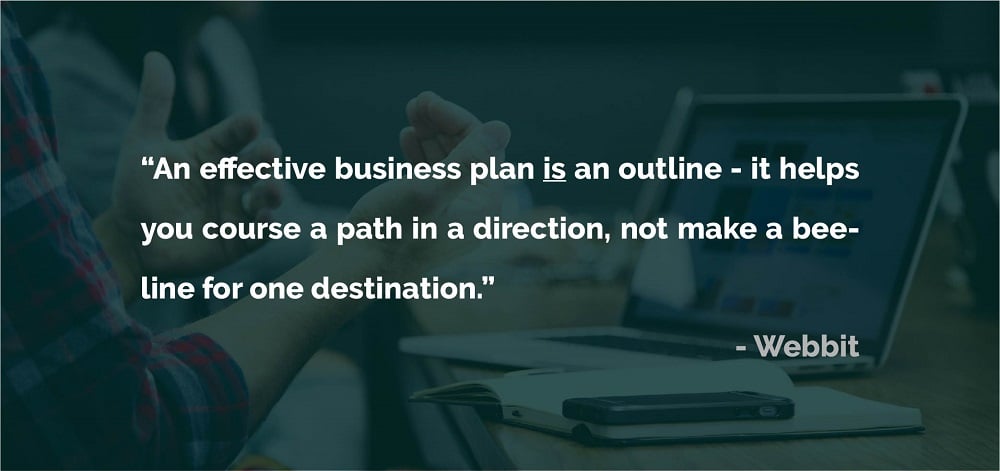The only business plan outline I’ve ever used put more barriers in the way of success than it removed.
It was a complete and utter waste of time.
Before I realized how inappropriate the advice was, I’d written an ‘executive summary’ with a ‘company overview’, and was deep into making (up) financial projections.
These things were totally irrelevant to me. I just wanted to sell my web design skills – i.e. set up a business selling a service – not apply for funding to launch the next Uber.
My concerns were more like: ‘What solution am I going to provide? How much can I charge? Where am I going to find new customers? Why will they buy from me?’.
And, it turns out most of my consultancy clients have had a similar issue too. They also needed help to find the right questions for the same reasons and in much the same way.
So, that’s why this post came to be – to share a proven way forward that’s actually useful.
The Quick Smart Business Plan Outline
Grab a cup of something nice to drink, open your word processor, and then work through the following questions as best you can.
Don’t overthink or force your answers beyond what you know, and make sure you get to the end for the really important conclusion.
Over to you.
~
[Copy and paste from here…]
Problems
What problems do people face in your niche?
Which problem do people need the most help with?
Which problem is the most costly to them?
Customer Identity
Who experiences this problem?
Who cares about getting this problem solved? Who is the customer?
What are they like?
What type of person are they?
What are their personal goals?
What might stress them out? What would reduce their stress?
Who would the wrong customer be?
Marketing
How will you find your first customers?
How will customers find you? How will they be attracted to your business?
Can you outline a basic digital marketing plan for your business?
Solutions
What does your solution do?
What form does your solution take – i.e. what do you actually deliver?
What do you need to deliver it? (equipment, computer, phone, software, internet, materials etc)
What have you already got?
What needs buying and for how much?
What’s your time-cost to provide the solution?
Do you need other people to help deliver the solution? (other professionals, suppliers, partners)
What else could you sell to customers down the line?
Costs & Value
How much will it cost you to deliver the solution?
How valuable is it to a customer? What are the cost implications to a customer if they don’t buy your solution?
How much do your competitors charge?
Do prices vary? If so, by how much?
How much would you be prepared to pay for your service?
What price will you charge?
Customer Experience
How long will it take to deliver a customer project start to finish?
Does it require customer involvement? If so, how? Could this affect how long it takes? What could be done to help them, help you?
How will you know it’s successful?
What will the experience of the customer be? What should good look like to them?
What is the customer’s journey from enquiry to delivery?
What could go wrong? What needs addressing now?
What might cause problems down the line?
[… to here]
~
The really important conclusion
If you’ve begun answering some of these questions properly you’re making progress which is the whole idea of business planning.
Bear in mind though that some of these questions require answers based on customer insight which you probably don’t have yet.
I bet you’ve just thought ‘I’ve no idea how to answer that’, and probably more than once, right?
Don’t worry, this is to be expected – how could you possibly know everything right now?
In fact, embrace it because here’s the thing – successful business owners never have all the answers. That’s because we’re constantly challenging what our business offers and why customers buy from us.
It’s about tapping into something valuable to people, then raising more questions to continuously learn and improve on it. You can’t afford to be static in how you plan and run your business. Instead, be dynamic and be willing to change almost anything if it makes sense to customers.
An effective business plan is an outline – it helps you course a path in a direction, not make a beeline for one destination. Think of your business plan as a compass rather than a map.
With all this in mind, go about your business by acting on what you know and questioning what you don’t.
That way, you’ll remain alert to new customer insight and, more importantly, capitalize on it when it comes along.
